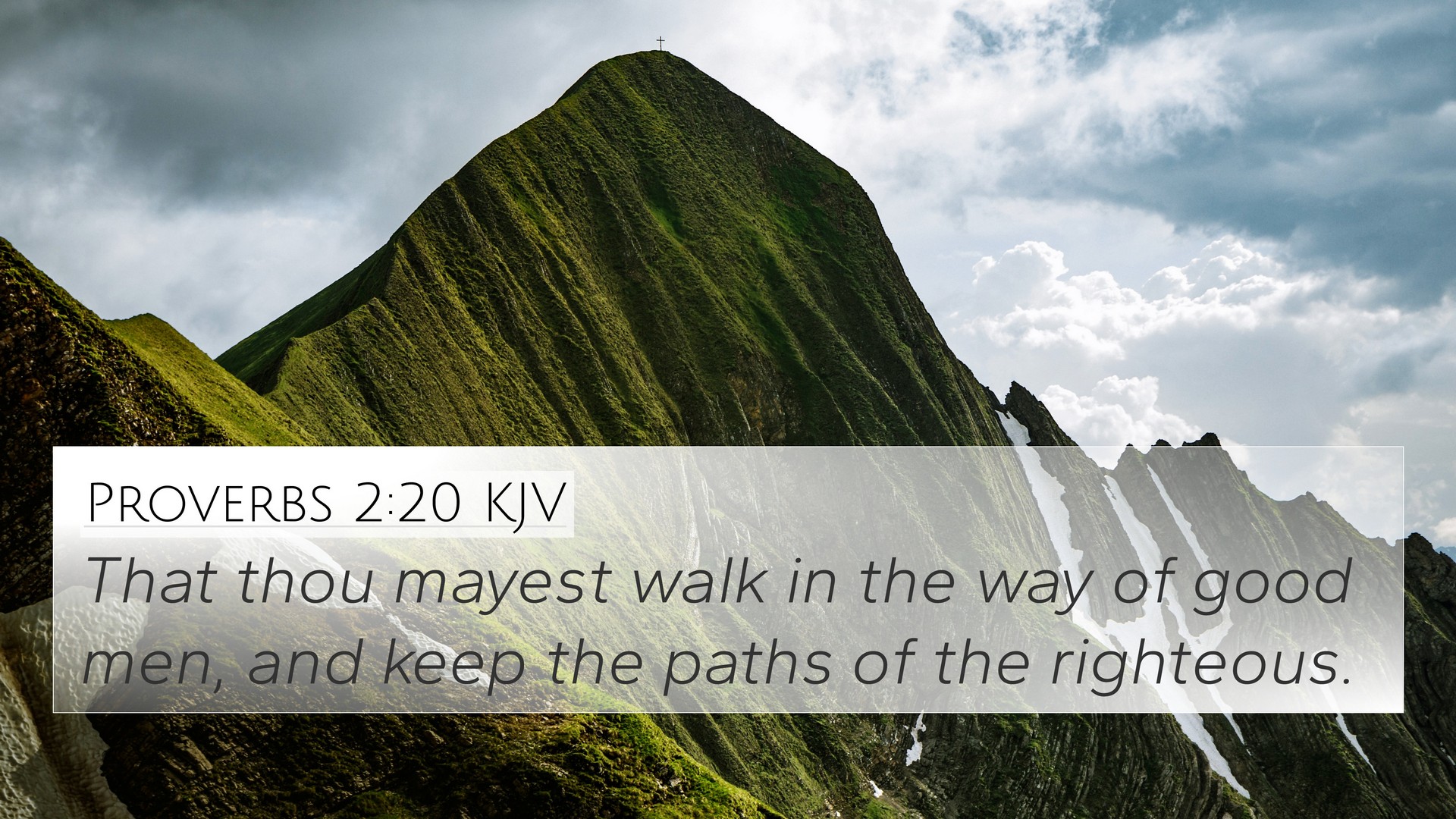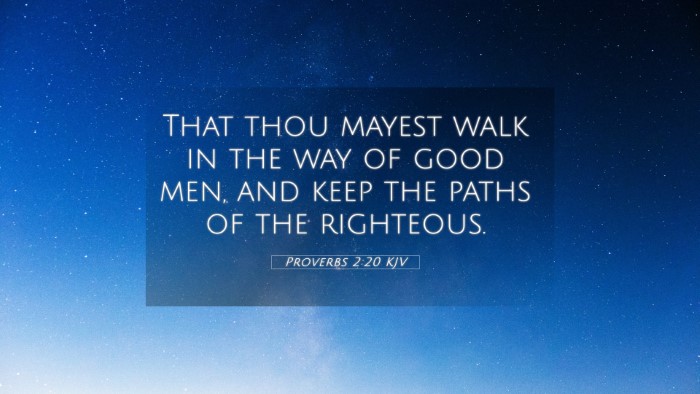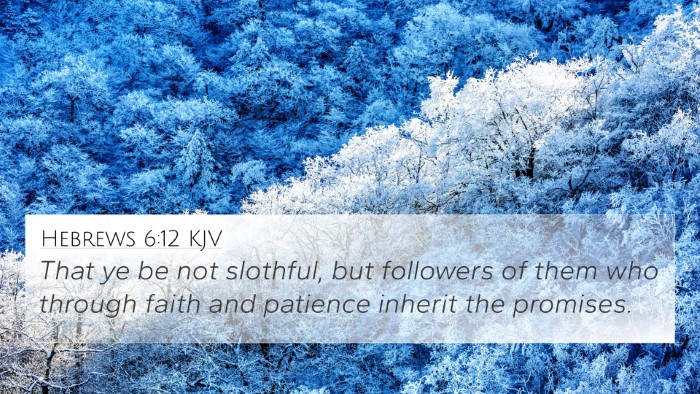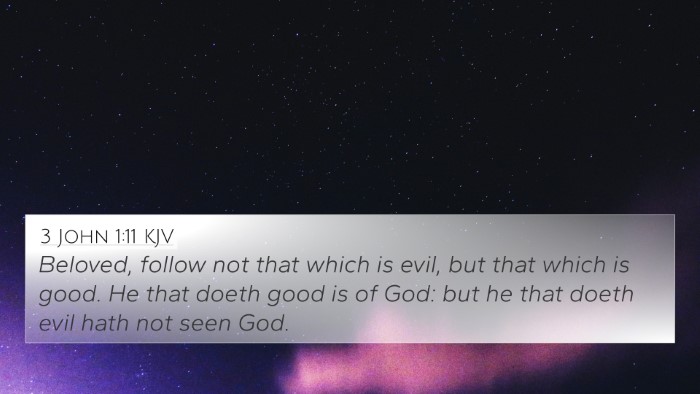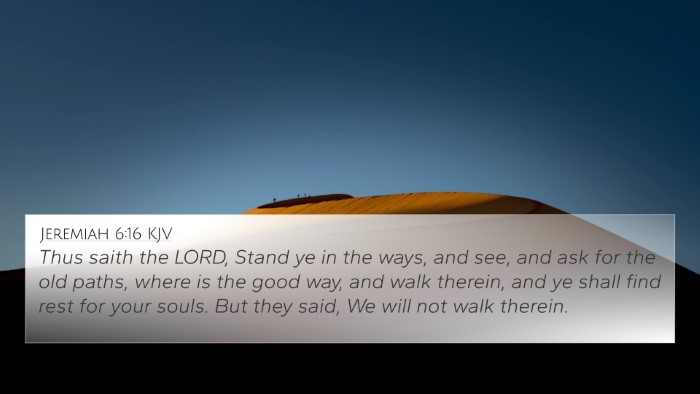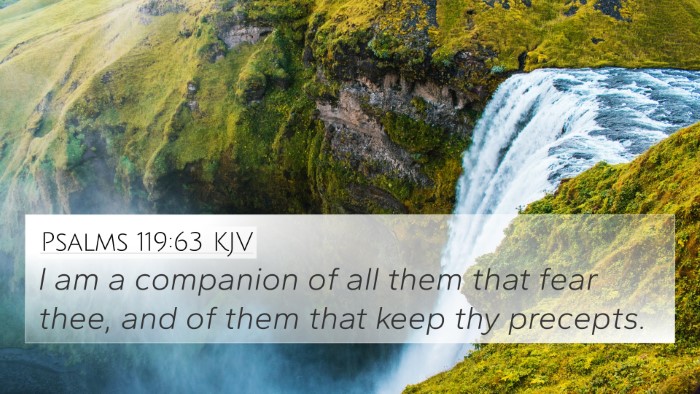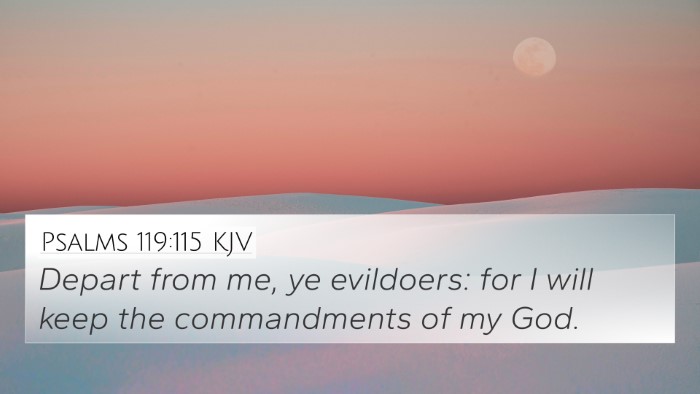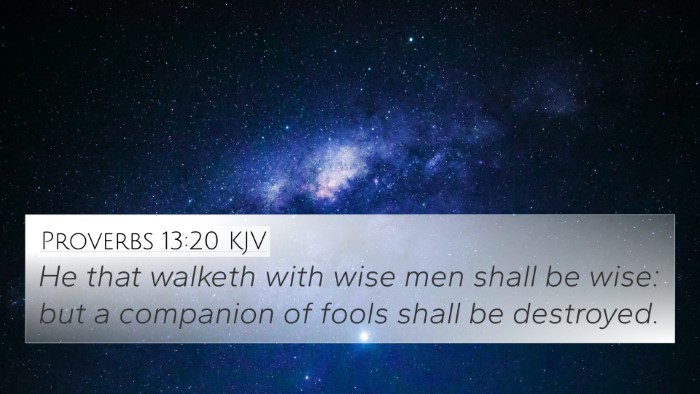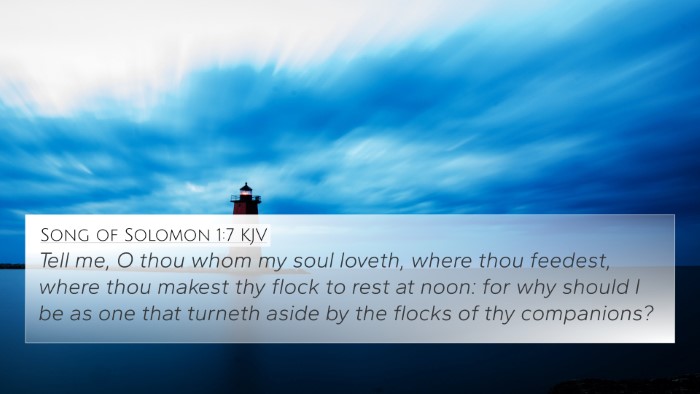Meaning and Interpretation of Proverbs 2:20
Proverbs 2:20 states: "So you will walk in the way of the good and keep to the paths of the righteous." This verse serves as a profound reminder of the importance of wisdom and moral integrity in one's life choices. Here, we will delve into the spiritual and practical insights derived from renowned public domain commentaries, including those by Matthew Henry, Albert Barnes, and Adam Clarke, while highlighting its connections to other key Bible verses.
Overview of Proverbs 2:20
This verse concludes a section that emphasizes the benefits of seeking wisdom. It reassures readers that pursuing understanding leads to a life characterized by goodness and righteousness. The implication is clear: knowledge ought to translate into ethical living.
Commentary Insights
- Matthew Henry: Henry emphasizes that the way of the good refers to a life of virtue, in contrast to the paths of the wicked. He notes that wisdom teaches us not only what to know but also how to act righteously in accordance with that knowledge.
- Albert Barnes: Barnes explains that 'walking in the way of the good' suggests active engagement in a lifestyle that reflects godly principles. He highlights the importance of community and fellowship with those who are righteous, as these relationships positively influence one's journey.
- Adam Clarke: Clarke explores the notion of 'keeping the paths of the righteous,' asserting that consistency in virtue is essential. He notes that the righteous path may often be challenging, yet it leads to true fulfillment and divine favor.
Thematic Connections
Proverbs 2:20 encompasses several themes, including:
- Wisdom as a guiding light in life.
- The contrast between good and evil paths.
- The communal aspect of living righteously.
- The transformative power of understanding.
Bible Verse Cross-References
This verse connects with various other scripture passages, reinforcing its themes and insights:
- Proverbs 2:6: "For the Lord gives wisdom; from His mouth come knowledge and understanding." This emphasizes that wisdom is divinely sourced.
- Isaiah 33:15-16: "He who walks righteously and speaks uprightly... will dwell on the heights." This verse echoes the theme of living righteously and the subsequent blessings.
- Matthew 7:14: "But small is the gate and narrow the road that leads to life, and only a few find it." This highlights the exclusive and disciplined nature of the good path.
- Romans 12:2: "Do not conform to the pattern of this world, but be transformed by the renewing of your mind." This reinforces the need for moral integrity aligned with God’s wisdom.
- Ephesians 5:15-16: "Be very careful, then, how you live—not as unwise but as wise, making the most of every opportunity." This mirrors the proactive approach to living wisely.
- Philippians 4:8: "Finally, brothers and sisters, whatever is true, whatever is noble, whatever is right... think about such things." This passage stresses focusing on goodness in thought and action.
- 1 Peter 3:11: "Let him turn away from evil and do good; let him seek peace and pursue it." This underscores the active pursuit of righteousness.
Comparative Bible Verse Analysis
In undertaking a comparative analysis of Proverbs 2:20, one might look at its parallels with other wisdom literature in the Bible:
- Ecclesiastes 2:13: "I saw that wisdom is better than folly, just as light is better than darkness." This supports the notion of the greater value attached to living wisely.
- Psalms 23:3: "He restores my soul; He guides me along the right paths for His name's sake." This provided assurance of divine guidance to the righteous path.
Inter-Biblical Dialogue
The dialogue between various scriptures enriches the understanding of Proverbs 2:20. Through the lens of the New Testament, the teachings of Jesus Christ often reiterate themes of good works and righteousness, echoing the wisdom of Old Testament scriptures. The Sermon on the Mount, particularly in Matthew 5:16: "Let your light shine before others," supports the call to live a life that reflects goodness inspired by wisdom.
Tools for Bible Cross-Referencing
For those exploring cross-referencing, several tools can be helpful:
- Bible concordance for keyword searches
- Bible cross-reference guide for thematic studies
- Online databases for quick scripture lookup
- Cross-reference Bible study methods for in-depth analysis
- Bible chain references for connecting themes across scripture
Conclusion
Proverbs 2:20 invites believers to contemplate their choices and relationships, encouraging a life embedded in wisdom and righteousness. By examining this scripture in conjunction with others, individuals can develop a richer understanding of its message and how it applies to their daily lives. As we seek to walk in the paths of the righteous, may we continually draw from the wealth of wisdom found in the scriptures.
